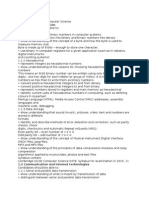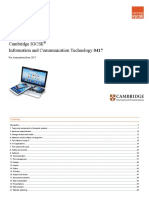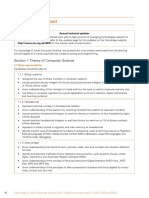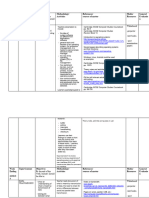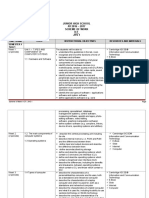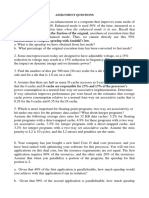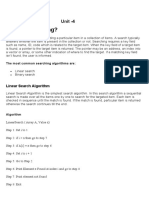0% found this document useful (0 votes)
28 views11 pagesFORM 3 Computer Science
The document outlines the Term 2 2025 Computer Science curriculum for Form 3 at Rocklands High School, detailing weekly lesson objectives, topics, and activities. Key topics include error detection, encryption, computer architecture, input/output devices, data storage, network hardware, software types, programming languages, the internet and WWW, and cookies. Each lesson includes an introduction, development activities, and conclusions to reinforce learning.
Uploaded by
Emily GonzoCopyright
© © All Rights Reserved
We take content rights seriously. If you suspect this is your content, claim it here.
Available Formats
Download as DOCX, PDF, TXT or read online on Scribd
0% found this document useful (0 votes)
28 views11 pagesFORM 3 Computer Science
The document outlines the Term 2 2025 Computer Science curriculum for Form 3 at Rocklands High School, detailing weekly lesson objectives, topics, and activities. Key topics include error detection, encryption, computer architecture, input/output devices, data storage, network hardware, software types, programming languages, the internet and WWW, and cookies. Each lesson includes an introduction, development activities, and conclusions to reinforce learning.
Uploaded by
Emily GonzoCopyright
© © All Rights Reserved
We take content rights seriously. If you suspect this is your content, claim it here.
Available Formats
Download as DOCX, PDF, TXT or read online on Scribd
/ 11



